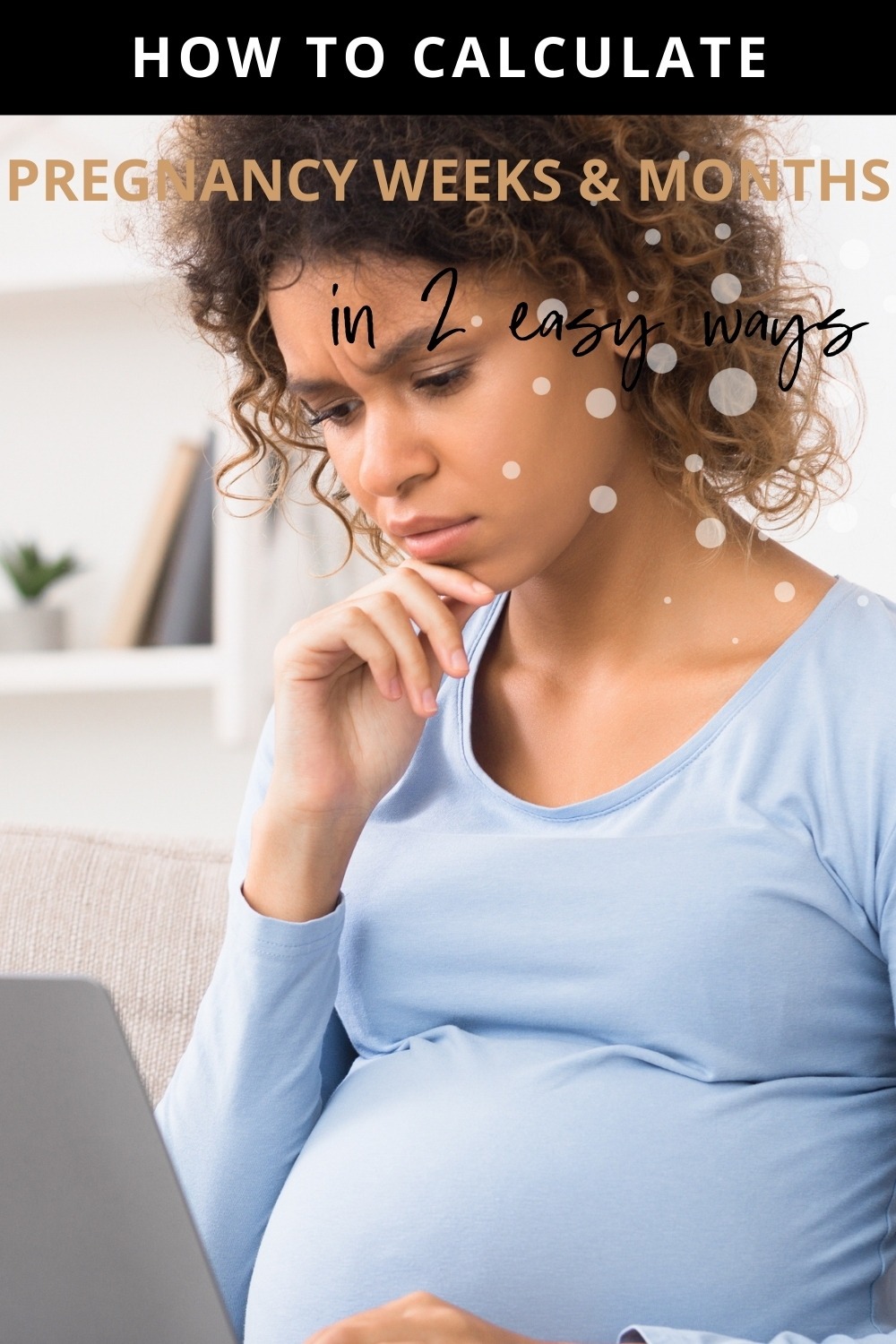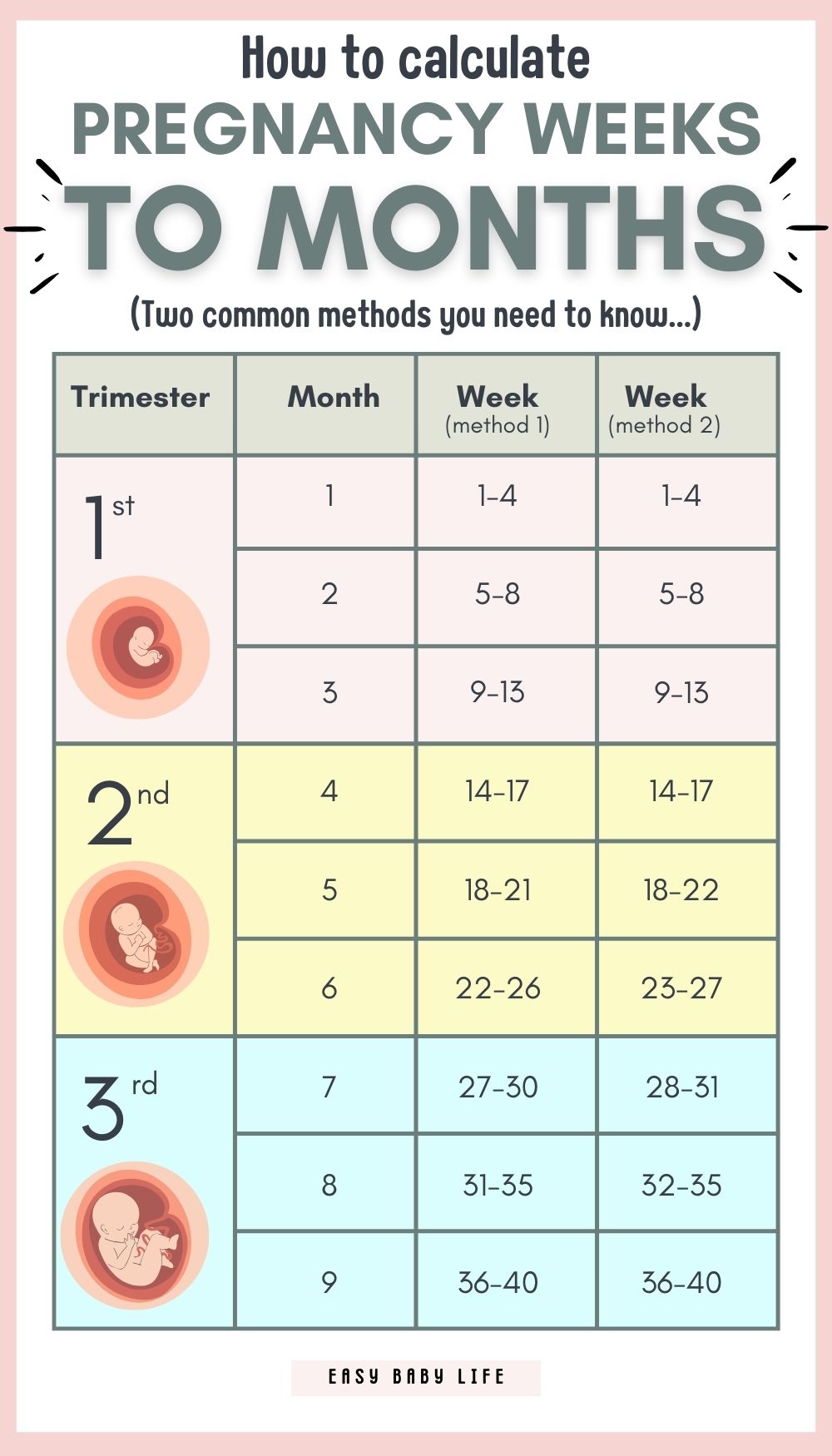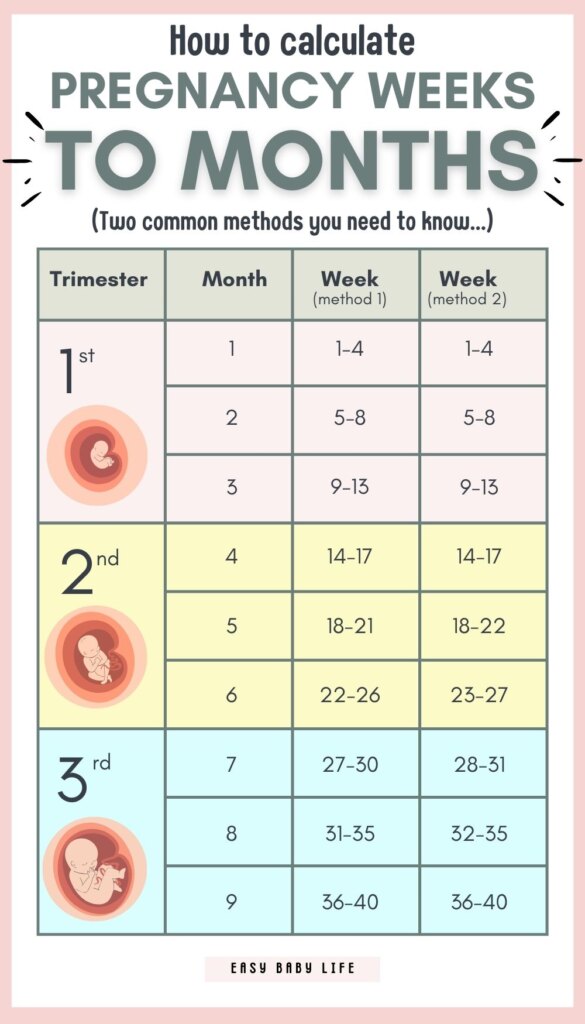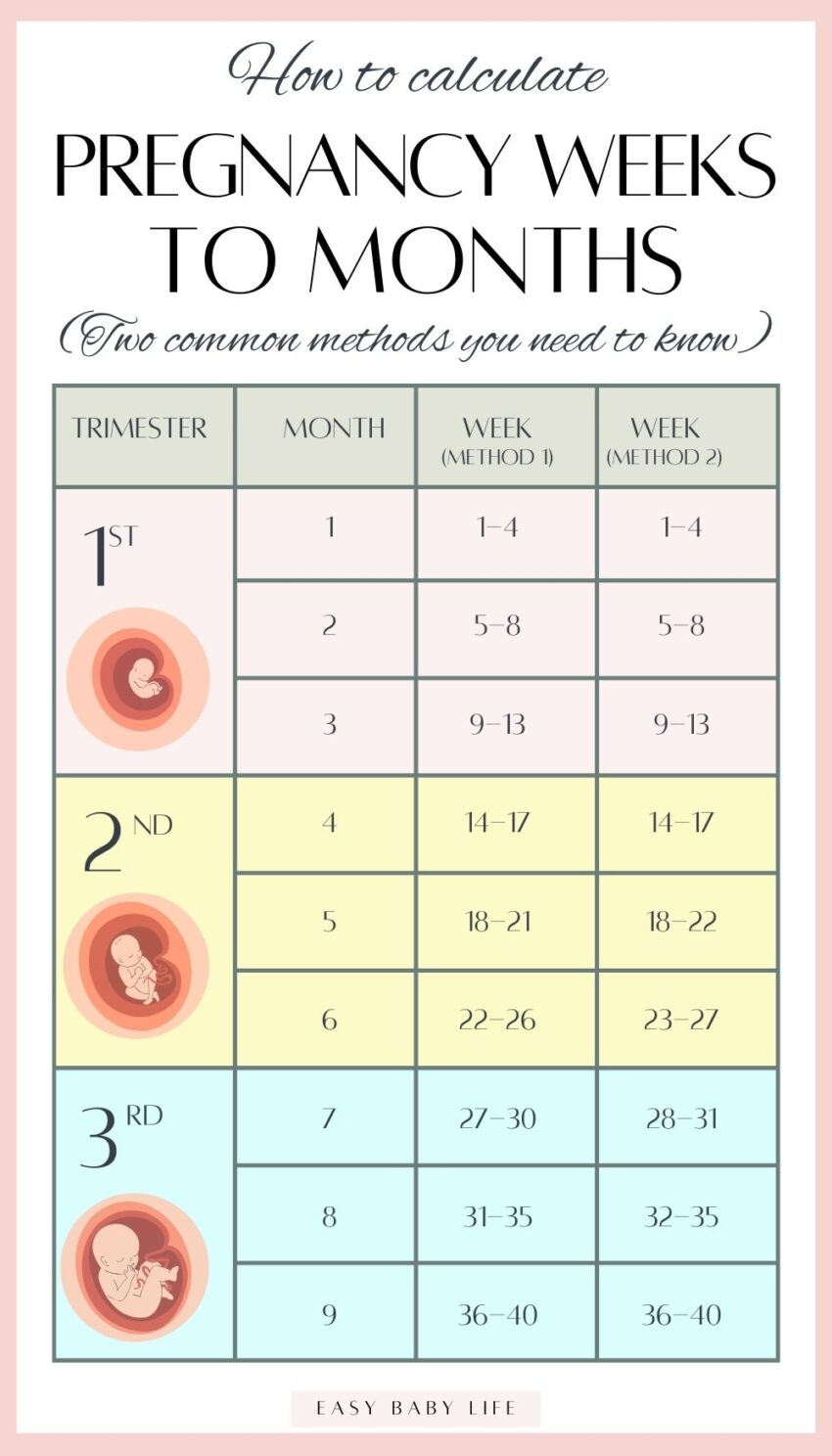Calculating pregnancy weeks to months can confuse anyone. They don’t match!
And to add to the confusion, there are different ways to do it; none are completely right or wrong.
In this article, we explain how to calculate your due date, pregnancy weeks and months, and which trimester you are in, and we’ll help you understand the logic behind it (yes, there actually is some logic to it!).
In this article…
How to Calculate the Due Date?
Your due date is calculated from the first day of your last menstrual period.
You might wonder why the start of pregnancy is calculated from before you even conceived. The simple answer is it is the most reliable way to do it because it is almost impossible to know exactly when the conception happened.
This is also where the difference between fetal and gestational ages comes from.
The gestational age is counted from the first day of your last menstrual period. However, in most cases, conception usually happens approximately two weeks later, during ovulation.
The fetal age is calculated from the date of conception. That is why fetal age is usually two weeks behind the gestational age. However, as explained above, because it is usually impossible to know when exactly the conception happened, measuring fetal age is a less precise and common way to measure pregnancy.
How Long Does a Pregnancy Last?
As known, pregnancy lasts for 40 weeks or 280 days. It is also known to last for nine calendar months.
That is where the confusion often happens. If one month has four weeks, then 40 weeks must be ten months, right? Then how can we say that a pregnancy lasts for nine months?
Well, four weeks are 28 days. As you know, every month (except for February) has 30 or 31 days. For that reason, one calendar month doesn’t last for four weeks but instead for 4.3 weeks on average. That is why we say that pregnancy lasts nine months, although it actually lasts a bit more, something like nine months and one week.
Which Trimester Am I In?
There are three trimesters in pregnancy. Each trimester consists of three months.
The first trimester includes the first three months (1-3) of pregnancy and weeks 1-13.
The second trimester includes the next three months (4-6) and weeks 14-27.
The third trimester includes the last three months (7-9) and the weeks starting from week 28 until the delivery.
So, to know which trimester you are in, you need to know which week you are in.
You may have heard about “the fourth trimester“. This is a way to talk about the newborn period since this is truly a new phase for both the baby and the new mom.
How to Calculate Pregnancy Weeks to Months?
 Pin
Pin
Although there are some variations regarding what weeks belong in a certain pregnancy month, know that these variations are slight, and neither is wrong.
Here are two more common ways to break down pregnancy weeks and months:
| Trimester | |||
| First | |||
| Second | |||
| Third | |||
None of these two methods is right or wrong. They are just ways to calculate pregnancy weeks and months. On Easy Baby Life, we use the second method (table 2) when going through what happens in all the pregnancy weeks.
How Many Weeks (Months) Pregnant Are You In, and What Week (Month) of Pregnancy Are You In?
The other confusing calculation is how many weeks or months pregnant you are and what week or month of pregnancy you are in.
It is actually really simple.
For example, let’s say you are now four weeks and three days pregnant. That means you are currently pregnant for the full 4 weeks (weeks you previously completed) and 3 days (in a current week).
It also means you are now in your fifth week of pregnancy. During your fifth week, you are actually pregnant for four full weeks and counting the days in the fifth week. Once you reach 4 weeks and 7 days, you have reached the finish line for week 5 and will be five full weeks pregnant. You are then entering your sixth week of pregnancy.
The same goes when counting pregnancy months. To reach a certain month of pregnancy, you must fully complete all the weeks in it. For example, if you are in your 5th month of pregnancy, it means you are pregnant for the full 4 months (the months you fully completed) plus a certain number of weeks. After you complete all the weeks in month 5 (4 months + 1/2/3/4 weeks), you will be five months pregnant and enter your sixth month.
It might help if you think about it as you think about age. Before a baby’s first birthday, they are already in the first year of life. But only after the first birthday will you say that your baby is one year old. After reaching the first birthday and becoming one year old, your baby enters the second year of life but won’t be two years old before reaching the second birthday.
Takeaway
To simplify it and avoid confusion, it is easier to count your pregnancy in weeks only than to change from pregnancy weeks to months, which is also what health practitioners usually do.
More clear now? I hope so! Save the chart below for future reference!
xo, Paula
Which pregnancy week are you in? Head over to our pregnancy week by week section to read about fetal development and all pregnancy symptoms, by the week of pregnancy.

Paula Dennholt founded Easy Baby Life in 2006 and has been a passionate parenting and pregnancy writer since then. Her parenting approach and writing are based on studies in cognitive-behavioral models and therapy for children and her experience as a mother and stepmother. Life as a parent has convinced her of how crucial it is to put relationships before rules. She strongly believes in positive parenting and a science-based approach.
Paula cooperates with a team of pediatricians who assist in reviewing and writing articles.










